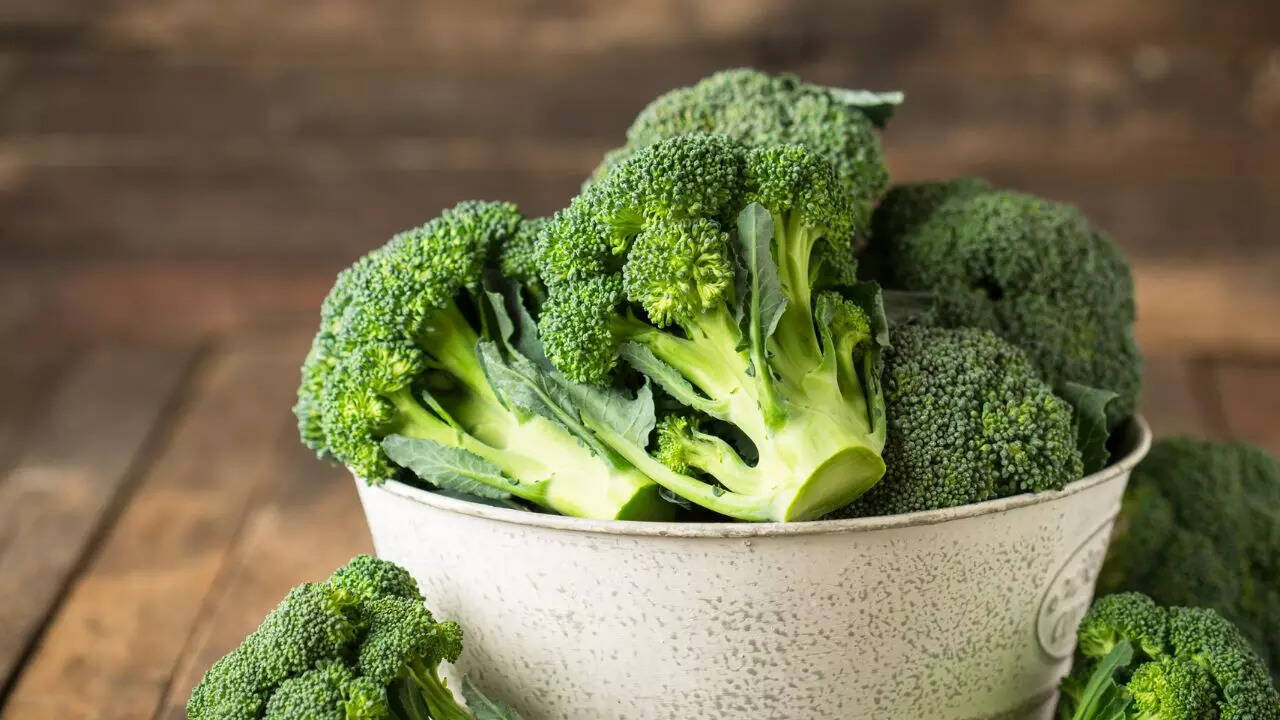Absolutely! Here’s a fully optimized, detailed, and advanced 2000-word guide on:
How Long Does Broccoli Last? An Intuitive Guide to Storing It Safely and Keeping It Fresh
Learn how to store fresh, cooked, and frozen broccoli the right way to avoid waste, preserve nutrients, and extend shelf life
Broccoli is a nutritional powerhouse and a fridge staple in many homes. Whether you love it steamed, roasted, in stir-fries, or blended into soups, keeping broccoli fresh ensures you get its full flavor and health benefits. But how long does broccoli last, and what’s the best way to store it?
The answer isn’t always straightforward—it depends on whether your broccoli is raw, cooked, blanched, or frozen, and how it’s stored. This intuitive guide breaks down everything you need to know about storing broccoli properly, identifying spoilage, and making it last as long as possible without compromising on safety or taste.

How Long Does Broccoli Last? (At a Glance)
Here’s a quick overview of broccoli’s average shelf life under different conditions:
| Broccoli Type | Room Temperature | Refrigerator (Fridge) | Freezer |
|---|---|---|---|
| Fresh (raw, whole) | 1–2 days | 5–7 days | 6–12 months |
| Cooked broccoli | Not recommended | 3–5 days | 10–12 months |
| Blanched (for freezing) | Not recommended | 1–2 days (before freezing) | 12 months+ |
| Cut or florets (uncooked) | 1 day | 3–5 days | 6–10 months |
Section 1: How to Tell If Broccoli Is Still Good
Fresh Broccoli – Signs of Freshness
When it’s fresh and healthy, broccoli will show:
- Firm, tight florets with a rich green or bluish-green color
- Crisp stalks with no slimy texture
- A mild, earthy scent
Warning Signs of Spoilage
If your broccoli is starting to go bad, look for:
- Yellowing florets (early sign of age, but still edible)
- Slimy texture on stalks or heads (time to toss it)
- Strong sulfur-like smell (rot is setting in)
- Mold or dark brown/black spots (unsafe to eat)
✅ Slight yellowing = older but edible
❌ Slimy or smelly = discard immediately
Section 2: How to Store Fresh Broccoli in the Refrigerator
Refrigeration is the best short-term storage method for fresh broccoli. But the how matters just as much as the where.
Best Practices:
- Keep broccoli dry. Moisture speeds up decay.
- Store in a breathable bag (like a perforated plastic bag or loosely wrapped in a paper towel inside an open bag).
- Place in the vegetable crisper drawer for humidity control.
Pro Tip: You can also store broccoli like cut flowers! Stand it upright in a jar with 1–2 inches of water and cover loosely with a plastic bag. Change water every couple of days.
How Long It Lasts in the Fridge:
- Whole heads: Up to 7 days
- Cut florets: 3–5 days
- Fresh from garden or farm: Often lasts longer than store-bought
Section 3: Can You Store Broccoli at Room Temperature?
Broccoli is a cool-season vegetable and doesn’t tolerate room temperature well. If left out, it will wilt and spoil quickly, especially in warm or humid conditions.
Room Temperature Storage Tips:
- Use only for a few hours if prepping or packing lunch
- Keep in a cool, shaded place for temporary storage
- Never leave cooked broccoli out more than 2 hours
⚠️ Room temp storage = quick spoilage and higher food safety risk
Section 4: Freezing Broccoli for Long-Term Storage

Freezing is the most effective way to preserve broccoli for several months without sacrificing too much quality. However, raw broccoli should never be frozen without blanching—doing so results in mushy texture, faded color, and lost nutrients.
Step-by-Step Guide to Freezing Broccoli:
- Wash thoroughly and trim florets into uniform pieces.
- Blanch in boiling water for 2–3 minutes.
- Immediately transfer to ice water to stop cooking.
- Drain well and pat dry.
- Place on a tray to pre-freeze for 1–2 hours.
- Transfer to airtight freezer bags or containers. Label with date.
Shelf Life in Freezer:
- Blanched broccoli lasts up to 12 months with minimal nutrient loss.
- Cooked broccoli also freezes well but may lose texture after thawing.
Section 5: How to Store Cooked Broccoli
Cooked broccoli must be stored carefully to prevent bacterial growth. Always refrigerate it within 2 hours of cooking.
Best Practices:
- Store in airtight glass or BPA-free plastic containers
- Place in the coldest part of the fridge
- Avoid storing with sauces or dressings (they reduce shelf life)
How Long Cooked Broccoli Lasts:
- In refrigerator: 3–5 days
- In freezer: 10–12 months
Tip: When reheating, only warm what you need—don’t reheat the same batch twice.
Section 6: How to Make Broccoli Last Longer (Preservation Tips)

1. Keep It Dry
Excess moisture is the #1 cause of spoilage. Use paper towels to wrap broccoli loosely before refrigerating.
2. Use Ethylene-Blocking Techniques
Store away from ethylene-producing fruits like apples and bananas. Ethylene accelerates aging and yellowing.
3. Invest in Produce Saver Bags
These reusable, breathable bags slow down spoilage by improving airflow and absorbing moisture.
4. Plan for Batch Cooking or Freezing
If you buy in bulk, plan to blanch and freeze a portion to avoid waste.
Section 7: Common Broccoli Storage Mistakes to Avoid
| Mistake | Why It’s a Problem | Better Alternative |
|---|---|---|
| Washing before refrigerating | Promotes mold and rot | Only wash right before use |
| Sealing in an airtight bag raw | Traps moisture and speeds decay | Use perforated or breathable wrap |
| Storing near apples or bananas | Ethylene gas causes yellowing and spoilage | Store separately |
| Freezing raw (unblanched) broccoli | Leads to mushy texture and dull flavor | Always blanch before freezing |
| Leaving cooked broccoli uncovered | Causes odors and bacterial contamination | Store in sealed container in fridge |
Table of Contents
FAQs: Broccoli Shelf Life and Storage
Q1: Can you eat broccoli after the expiration date?
The “sell by” or “best by” date is a guideline, not a hard rule. If broccoli is still firm, green, and doesn’t smell bad, it’s likely still good. Always check with your eyes, nose, and hands.
Q2: Can yellow broccoli be eaten?
Yes, slightly yellowed broccoli is still edible, but the flavor may be more bitter. However, if it’s mushy or smells sulfurous, discard it.
Q3: Is it okay to freeze broccoli without blanching?
Technically yes, but it will lose flavor, texture, and nutrients faster. Blanching is strongly recommended for better results.
Q4: Can I store broccoli in water like fresh herbs?
Yes! Place the stalks upright in a jar of water, loosely cover the top, and keep it in the fridge. It helps prolong crispness for 4–5 days.
Q5: How can I tell if frozen broccoli has gone bad?
Look for excessive ice crystals, freezer burn, dull color, or a rancid smell. Frozen broccoli should stay green and firm when thawed.
Q6: Can I use soft broccoli in recipes?
If it’s just a little limp and still smells fine, use it in cooked recipes like soups, quiches, or casseroles. Avoid using mushy or smelly florets.
Q7: Does broccoli lose nutrients over time?
Yes—nutrients like vitamin C degrade with time, especially after cooking. Freezing helps preserve nutrients if done quickly after harvest.
Conclusion: Maximize Broccoli’s Freshness and Flavor

Broccoli is a healthful, delicious vegetable that’s worth keeping on hand—but to truly enjoy it, proper storage is essential. Understanding how long broccoli lasts, and how to store it at every stage—from raw to cooked to frozen—can save you money, reduce waste, and help you get the most nutrition from every bite.
By following the intuitive methods laid out in this guide—like using breathable storage, blanching before freezing, and avoiding common mistakes—you can extend the life of your broccoli and enjoy it when it’s at its best.

